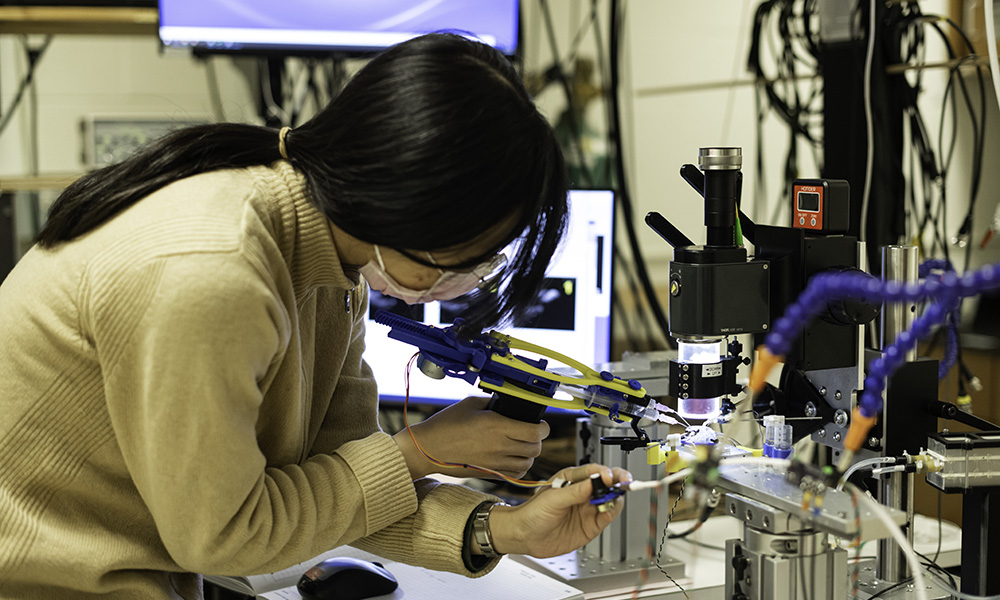Minor and Cluster Requirements
Students can choose to minor or complete a cluster in biomedical engineering.
Biomedical Engineering Minor
The biomedical engineering minor provides substantive exposure to the biological and engineering sciences and gives students a basic perspective on the complex structure and function of living systems and their analysis by physical and engineering principles.

The minor is available to students in all majors, but engineering and biology students find it easier to complete these requirements. Students cannot use more than two of the courses required for the biomedical engineering minor to also satisfy requirements in their major. When filing the online Minor Declaration form, if there are any overlap courses (max two), those will be reported on the form.
All students that propose a minor in biomedical engineering must fulfill the basic math requirements (MATH 161, MATH 162, MATH 165 or MATH 141, MATH 142, MATH 143 or these in combination with Math AP credit). Contact the undergraduate program coordinator for information on how to submit an online Minor Declaration approval.
Biological Science Courses (Eight Credit Hours)
Students must complete two life science courses (i.e., biology, microbiology, neuroscience). Students can use one of the following:
- BIOL 110: Principles of Biology I
- BIOL 112
- AP Biology
Plus, one other life science to meet the two life science course requirement, including BME 211: Cellular and Molecular Biology Foundations, or BME 258: Human Anatomy.
Biomedical Engineering Introductory Course (Four Credit Hours)
BME 101: Introduction to Biomedical Engineering (four credits) is a first-year or sophomore course that showcases the range of the biomedical engineering applications.
Faculty advisers have the flexibility of substituting this requirement for another four credit BME-related course.
Engineering Courses (12 Credit Hours)
Eight biomedical engineering credits and four additional engineering credits are required. The BME courses can include any 400-level BME courses or cross-listed courses.
BME 211: Cellular and Molecular Biology Foundations, BME 258: Human Anatomy, and BME 459: Applied Human Anatomy can NOT be used for this requirement, as they are life science courses.
Note: Students are warned to confirm that all prerequisites for the courses below are fulfilled.
Examples of engineering courses include:
- BME 201: Fundamentals of Biomechanics
- BME 201P: MATLAB for Bioengineers
- BME 210: Biosystems and Circuits
- BME 212: Viscoelasticity in Biological Tissues
- BME 218: Introduction to Neuroengineering
- BME 221: Biomedical Computation
- BME 228: Physiological Control Systems
- BME 230: Biomedical Signals and Measurements
- BME 245: Biomaterials
- BME 251: Biomedical Ultrasound
- BME 253: Ultrasound Imaging
- BME 255: Translational Biomedical Optics
- BME 259: Transport Phenomena in Biological Systems
- BME 260: Quantitative Physiology
- BME 262: Cell and Tissue Engineering
- BME 266: Bioprocess Engineering
- BME 270: Biomedical Microscopy
- BME 283: Biosolid Mechanics
- BME 391: Independent Study
Computer science courses do not fulfill the engineering requirement.
